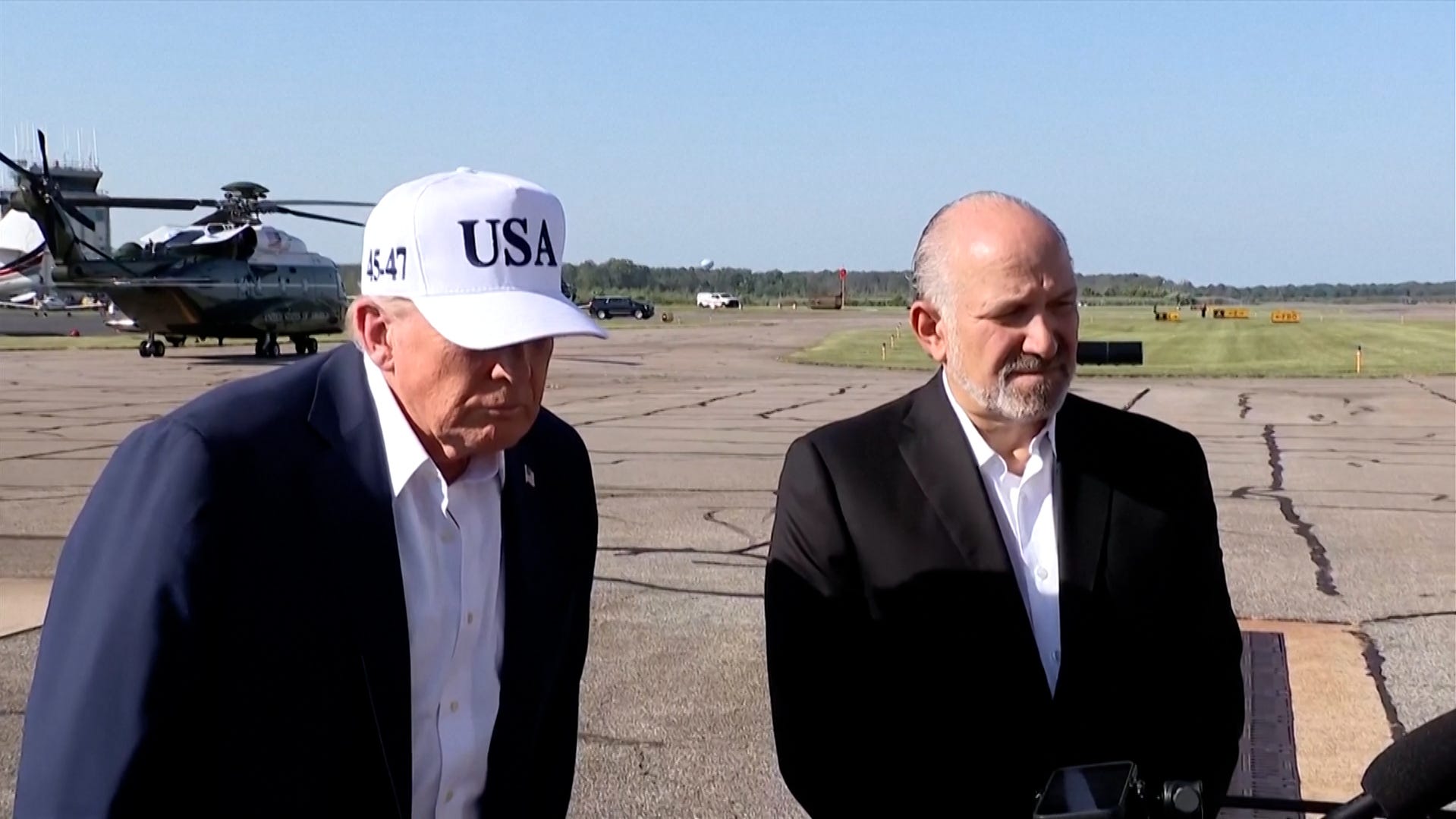US close to several trade deals ahead of tariff deadline this week, Trump officials say

The United States is close to clinching several trade deals ahead of a July 9 deadline when higher tariffs were due to kick in, Treasury Secretary Scott Bessent said, predicting several big announcements in coming days.
Bessent told CNN's "State of the Union" that President Donald Trump would also send out letters to 100 smaller countries with whom the U.S. doesn't have much trade, notifying them that they would face higher tariff rates first set on April 2 and then suspended until July 9.
"President Trump's going to be sending letters to some of our trading partners saying that if you don't move things along, then on August 1 you will boomerang back to your April 2 tariff level. So I think we're going to see a lot of deals very quickly," Bessent told CNN.
Since taking office, Trump has set off a global trade war that has upended financial markets and sent policymakers scrambling to guard their economies, including through deals with the U.S. and other countries.
Trump on April 2 announced a 10% base tariff rate and additional amounts for most countries, some ranging as high as 50%. The news roiled financial markets, prompting the U.S. president to suspend all but the 10% base rate for 90 days - until July 9 - to allow more time for negotiations to secure deals.
Bessent denied that August 1 was a new deadline for negotiations. "We are saying this is when it's happening. If you want to speed things up, have at it. If you want to go back to the old rate, that's your choice," he told CNN.
Kevin Hassett, who heads the White House National Economic Council, in an interview on CBS's "Face the Nation" program, offered some wiggle room for countries engaged in earnest negotiations.
"There are deadlines, and there are things that are close, and so maybe things will push back past the deadline," Hassett said, adding that Trump would decide if that could happen.
'I hear good things'
Stephen Miran, chairman of the White House Council of Economic Advisers, told ABC News' "This Week" that countries needed to make concessions to get lower tariff rates.
"I hear good things about the talks with Europe. I hear good things about the talks with India," Miran said. "And so I would expect that a number of countries that are in the process of making those concessions... might see their date rolled."
Bessent told CNN the Trump administration was focused on 18 important trading partners that account for 95% of the U.S. trade deficit. But he said there had been "a lot of foot-dragging" among countries in finalizing trade deals.
He declined to name countries close to a trade agreement, "because I don't want to let them off the hook."
Trump has repeatedly said India is close to signing a deal and expressed hope that an agreement could be reached with the European Union, while casting doubt on a deal with Japan.
Thailand is making a last-ditch effort to avert a 36% tariff by offering greater market access for U.S. farm and industrial goods, along with increased purchases of U.S. energy and Boeing BA.N jets, Finance Minister Pichai Chunhavajira told Bloomberg News on Sunday.
India and the United States are likely to make a final decision on a mini trade deal in the next 24 to 48 hours, local Indian news channel CNBC-TV18 reported on Sunday, with average tariffs on Indian goods shipped to the U.S. to be 10%, it said.
Hassett told CBS News that framework agreements already reached with Britain and Vietnam could provide guidelines for other countries seeking trade deals with Washington. He also said Trump's pressure was prompting many countries to move production to the United States.
Miran called the Vietnam deal "fantastic."
"It's extremely one-sided. We get to apply a significant tariff to Vietnamese exports. They're opening their markets to ours, applying zero tariff to our exports."
Trump on Friday said countries not offering concessions could see their tariff rates spike up to 70%, but offered no details. Bessent, asked about the 70% rate, referred back to the April 2 list, which did not include rates that high.
(Reporting by Andrea Shalal and Brendan O'Brien; Editing by Bill Berkrot)